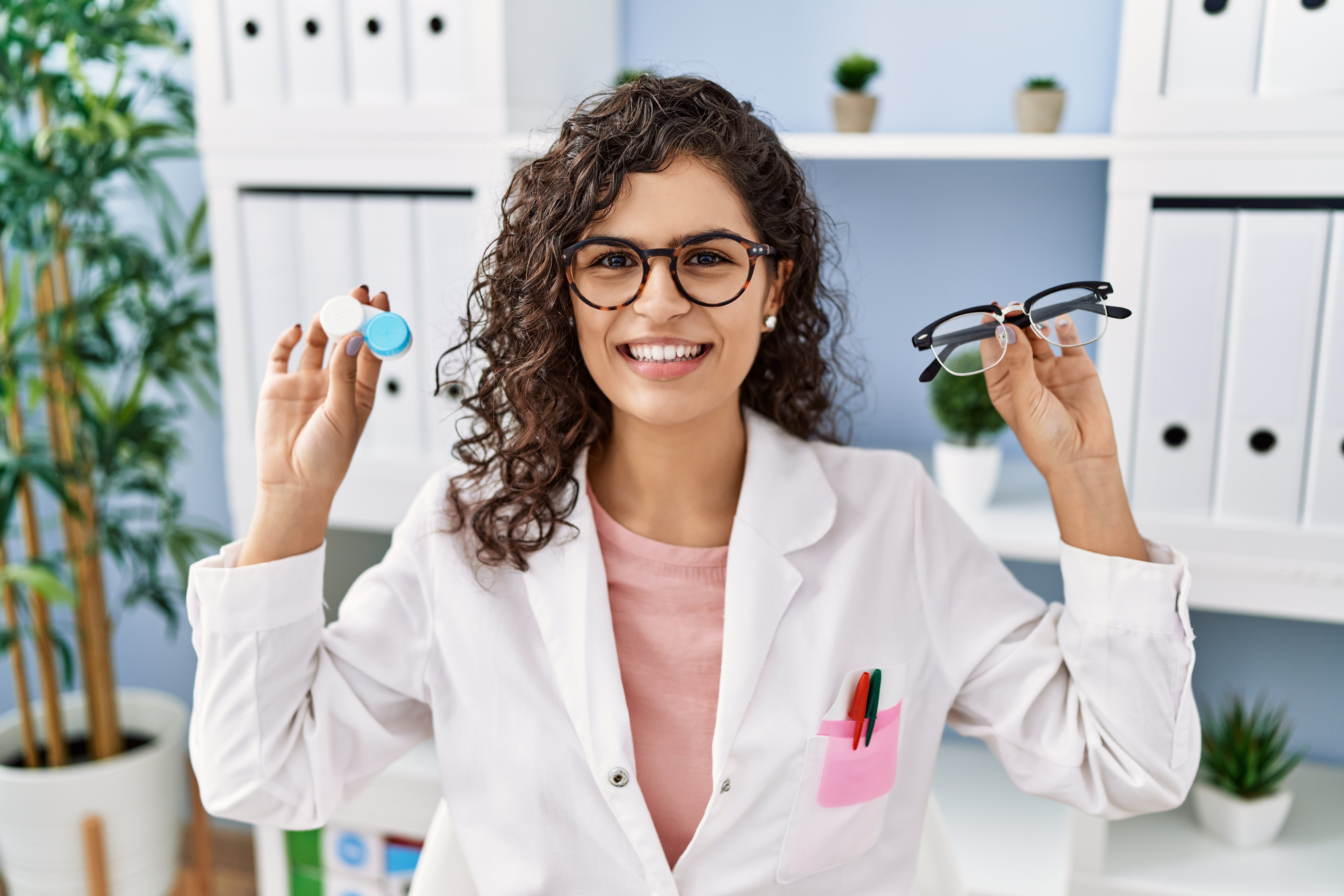
Switching from glasses to contact lenses can cause blurry vision. As you adjust to the change, your eyesight may become less sharp. Blurry vision is common at first because of dryness. To manage moisture loss, your eye doctor can prescribe suitable eye drops. If the lenses continue making your eyes dry even after using eye drops, your eye doctor may suggest trying a different type.
If you want to switch from glasses to contact lenses, these frequently asked questions may help address your concerns.
Is It Safe to Switch From Glasses to Contact Lenses?
It is generally safe to switch from wearing glasses to wearing contact lenses. Your eye doctor at Norwood Family Eye Care will perform a contact lens exam to determine your suitability and the best lenses for your needs. Your doctor will explain how to wear and remove your contacts. They will also explain how to clean and store your contact lenses and how often you should discard them.
Does Your Brain Have to Adjust to Contacts?
Like any new treatment, it may take your eye and brain a couple of days to adjust to the prescription. The changes may cause mild discomfort, such as blurriness, mild dizziness, or minor headaches. If these symptoms continue past the first week, your doctor may need to adjust your prescription.
How Long Does It Take to Transition From Glasses to Contacts?
Generally, it may take up to two weeks to adjust to your contact lenses. First, your eyes may feel a bit irritated after your lens placement. But you will soon start getting used to how the contacts feel on your eyes.
After getting over the initial discomfort of feeling the lenses in your eyes, you may forget to remove them. An alarm can help remind you to take them out and clean your lenses as required.
Do Contacts Give You Better Vision Than Glasses?
Contact lenses give you a wider field of view than eyeglasses. They move as your eyes move, and nothing blocks your view. Also, glasses get wet or become foggy when it is rainy or cold.
What Are the Cons of Contact Lenses?
Contact lenses require a lot more care and maintenance than eyeglasses. You need to clean and store them appropriately. Otherwise, you may get eye infections. You may also get severe eye infections if you do not wash your hands before handling your contact lenses.
Is It Safe to Wear Contact Lenses Every Day?
Yes, you should be able to wear your contacts daily. But there are exceptions to that rule. You may be unable to wear your contacts daily if you:
Experience eye soreness, redness, irritation, or dryness
Have an allergic reaction to your lenses
Suffer from an eye infection
How long you can wear your contact lenses depends on whether the lenses are daily wear or extended wear.
Is Switching to Contact Lenses Worth It?
Your vision, eye health, and lifestyle needs determine whether switching to contact lenses is worth it. Contact lenses sit securely on your eyes and move with them. They can help you stay in action without the distortions and reflections you get with eyeglasses. That is especially helpful if you are athletic or have an active lifestyle.
Your eye doctor will assess your vision and eye health to determine whether contact lenses suit you.
For more about switching from glasses to contact lenses, visit Norwood Family Eye Care at our office in Bartlett, Tennessee. Call 901-617-8095 to book an appointment today.











